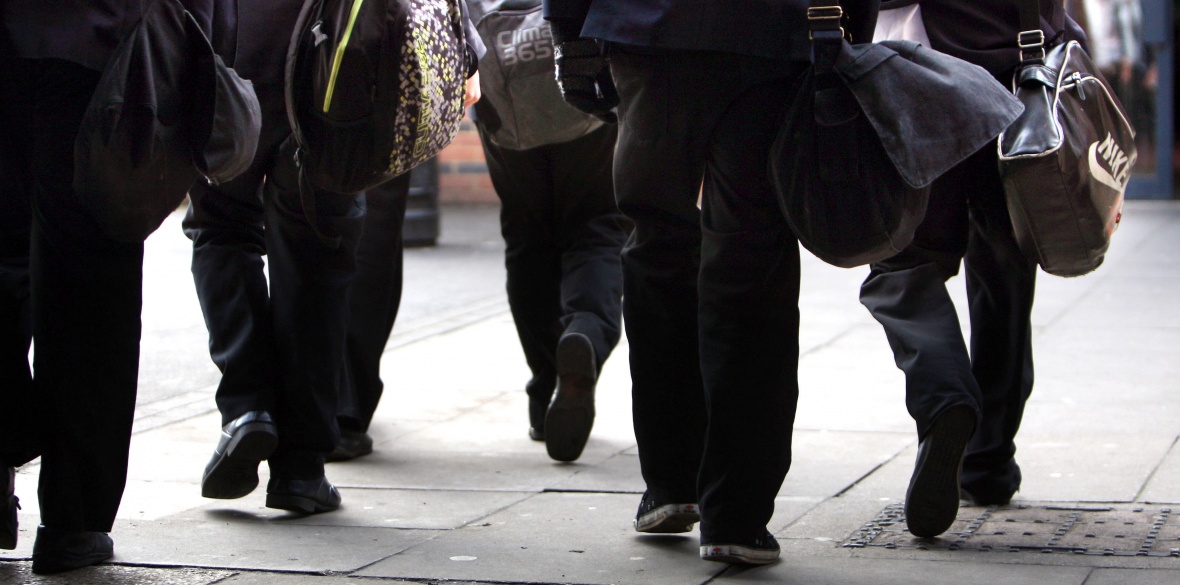This is the last article you can read this month
You can read more article this month
You can read more articles this month
Sorry your limit is up for this month
Reset on:
Please help support the Morning Star by subscribing here
POOR pupils are likely to fall years behind their richer counterparts academically if they attend disadvantaged schools, new figures suggest.
The data comes from a paper published by the Organisation for Economic Co-operation and Development (OECD).
It indicated that, when disadvantaged children attend advantaged schools, they score 77 points higher — the equivalent of two-and-a-half years more schooling — than those attending disadvantaged schools.
The figures suggest 46 per cent of disadvantaged pupils in Britain attend schools where other children also tend to be deprived.
Published in the organisation’s Equity In Education paper, the data indicates the average science score in the 2015 Pisa (Programme for International Student Assessment) tests among socio-economically disadvantaged pupils in Britain was 84 points lower than that of advantaged children — a gap equivalent to almost three full years of schooling.
OECD director of education and skills Andreas Schleicher said there was evidence to suggest teachers in Britain did not have the incentive to go into disadvantaged schools and help them.
“Currently you have regressive teacher allocation where the schools in greater disadvantage face greater shortage of qualified teachers,” Mr Schleicher said.
“Disadvantaged students have great difficulties overcoming those sorts of social-emotional factors.”
He said that this meant it may result in disadvantaged pupils not going back into education even if they do perform well academically.
Mr Schleicher said one reason could be that “you still don’t feel a high sense of belonging.”
The data also indicates that only 15 per cent of pupils from poor backgrounds in Britain are satisfied with their lives, do not suffer from test anxiety and feel socially integrated at school. The figure represents those who are “socially and emotionally resilient.”
More than two-thirds of the achievement gap observed at age 15, and about two-thirds of the gap among 25- to 29-year-olds, was already seen among 10-year-olds.
National Education Union (NEU) joint general secretary Mary Bousted said the report was a “shocking indictment” of eight years of Conservative education policies.
She said: “As the fifth wealthiest global economy, this is shameful. It is the government’s responsibility to create the conditions in which children are well fed and clothed and living in decent accommodation.
“These are the basic conditions for learning. Yet there are over four million children living in poverty in the UK currently, two-thirds of whom are in working families.
“One of the report’s most powerful findings is that reforms aimed at increasing school choice actually worsen inequality between schools.
“This has certainly been the experience in England with the Conservatives’ ‘choice agenda’ entrenching and exacerbating inequality within the school system.”
NEU welcomed the OECD recommendation that policy-makers should increase resources for schools serving disadvantaged communities and the government should create a comprehensive entitlement to early-years education for all children.
“This report should act as a wake-up call to the government,” Ms Bousted said.
“Its so-called school ‘reforms’ since 2010 have not only failed to achieve their stated aim of raising education quality they have significantly widened inequality and entrenched disadvantage throughout a child’s schooling and into adulthood.”












